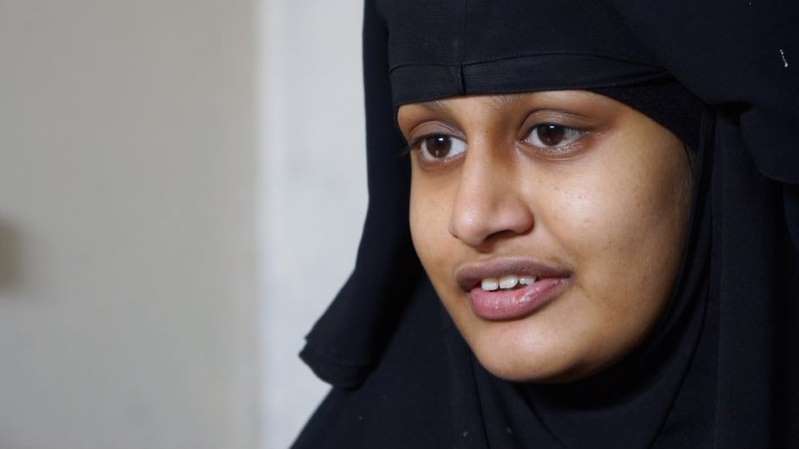
Fifteen-year-old Shamima Begum lived in Bethnal Green, London in 2015.
The British Supreme Court has put an end to the high-profile case of deprivation of citizenship of a 21-year-old girl who several years ago joined the militants of the jihadist group “Islamic State” (the organization is banned in Russia). The court ruled on Friday that Shamima Begum will not be able to return from Syria to Britain to challenge the revocation of her British citizenship.
The verdict was seen as an important precedent. Five Supreme Court justices ruled Friday that the ban on returning to Britain does not violate her right to a fair trial, but that she herself poses a threat to national security.
In 2014, Shamima Begum, then a 15-year-old high school student, ran away from her family's home in east London and left with two school friends for Syria, where she married an IS militant.
In February 2019, she told the Times that she did not regret what she had done and that she was not embarrassed by the sight of the severed head in the trash can.
- The “jihadist's wife” wants to return home. Will Britain accept it?
The journalist met with her in a guarded camp in northern Syria where IS members are being held. She was pregnant, but her baby died shortly after birth. Two previous children also passed away in infancy.
Begum's husband, a Dutch convert to Islam, is reportedly in a Syrian prison.

Shamima Begum hoped the British authorities would allow her to return home
After a controversial interview, then Interior Minister Sajid Javid stripped her of her British citizenship “for reasons of national security.”
Last July, an appellate court ruled that Begum could not effectively challenge the decision while in Syria.
Begum's lawyers consider the decision of the Ministry of Internal Affairs illegal, since as a result she found herself completely stateless, and she is threatened with death or cruel and humiliating treatment.
Government officials say the Begum will create a terrorist threat by returning to Britain.
Begum's parents came to Britain from Bangladesh, but the country's foreign minister said she would not receive Bangladesh citizenship.
The Begum case has become the subject of fierce controversy in British society – there are those who believe that she should be held accountable for what she did under British law, while others are convinced that by her actions she deprived herself of the right to British citizenship. The Sun newspaper called her “an ardent fanatic who should have no place on British soil.”

